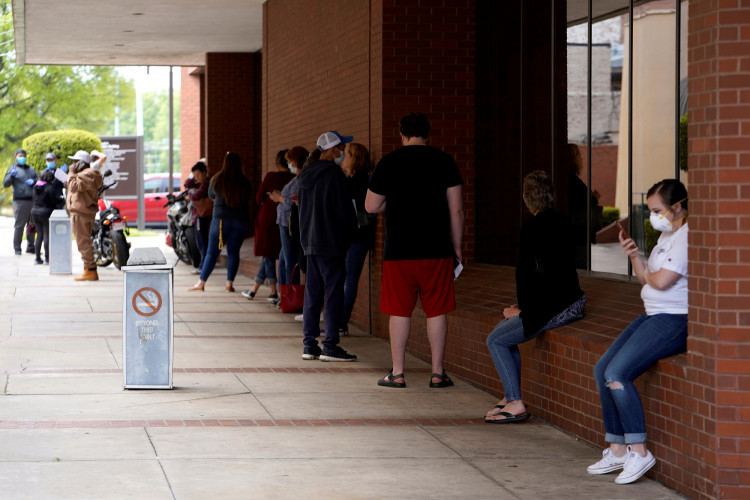An economic depression in the United States and the world might be in the cards in 2021 should the feared second wave of COVID-19 infections strike in the fall.
It might only take a jump in COVID-19 cases to set off the train of events eventually igniting a depression, which is defined as 12 months or more of double-digit unemployment, foretells Mark Zandi, chief economist of Moody's Analytics.
The national unemployment rate was 4.4% in March and 14.7% in April, according to the Bureau of Labor Statistics (BLS). The Congressional Budget Office (CBO) predicts the unemployment rate to average close to 14% during the second quarter.
The probability of a plunge into depression by a renewed spike in coronavirus cases is almost ensured by the lack of a vaccine that will prevent the widespread outbreak of the disease. More than 100 vaccine candidates are being developed but it might take up to two years at the earliest for public vaccinations to begin.
"If we get a second wave, it will be a depression," said Zandi to CNBC. "We may not shut down again, but certainly it will scare people and spook people and weigh on the economy."
A ready-to-use vaccine or reports of solid progress being made in its development is necessary for the battered U.S. economy to get back on track to cement renewed economic growth and high unemployment, contends Zandi. He said a delay or failure to develop a vaccine within 2021 will trigger a 1930s-type economic depression.
"It's critical. It's a necessary condition for the economy to fully recover," Zandi emphasized. "We're going to see the market reevaluate things at some point.
The Great Depression started in the United States on Sept. 4, 1929 and lasted until the mid-1930s. It was ignited by a major fall in stock prices on Wall Street and led to the stock market crash of Oct. 29, 1929, also called Black Tuesday.
From 1929 to 1932, worldwide GDP plummeted 15% while poverty and starvation were rampant. In contrast, worldwide GDP fell by less than 1% from 2008 to 2009 during the Great Recession.
Zandi estimates the U.S. economy is "going to be in quicksand because of the uncertainty around the virus and the impact that it's going to have on consumers and businesses."
Zandi was one of the first prominent economists to warn the world of the immense economic danger posed by the then relatively new disease now called COVID-19. The disease first made its appearance in Wuhan, China in December 2019.
In late February, Zandi warned Wall Street was underestimating the future economic damage from a pandemic. His forecast for a global economic slowdown was made before states imposed strict lockdown and social distancing measures to contain the spread of the coronavirus.






